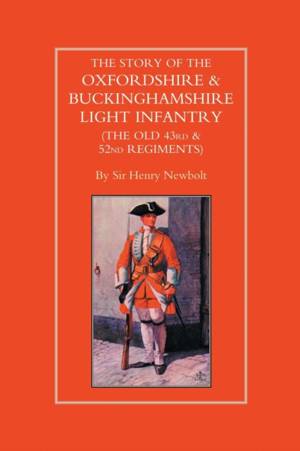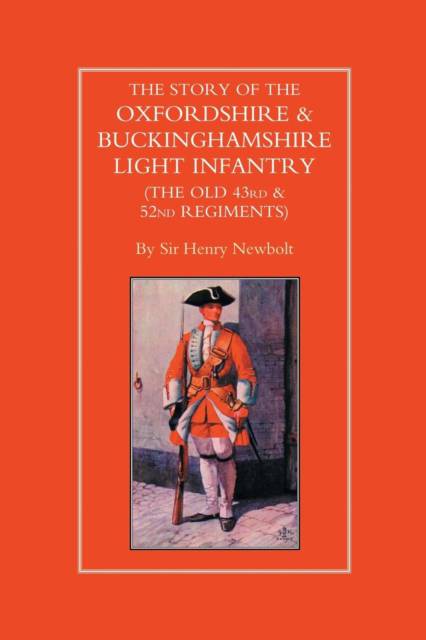
- Retrait gratuit dans votre magasin Club
- 7.000.000 titres dans notre catalogue
- Payer en toute sécurité
- Toujours un magasin près de chez vous
- Retrait gratuit dans votre magasin Club
- 7.000.0000 titres dans notre catalogue
- Payer en toute sécurité
- Toujours un magasin près de chez vous
STORY OF THE OXFORDSHIRE & BUCKINGHAMSHIRE LIGHT INFANTRY (THE OLD 43rd & 52nd REGIMENTS)
Henry Newbolt
40,95 €
+ 81 points
Description
Some time ago I read of an officer of the old 52nd who used to strop his razor fifty-two times every morning before shaving. In1881, when the Cardwell reforms took effect, the 52nd were linked with the 43rd. The officer concerned still stropped his razor fifty-two times but when he reached forty-three he turned his head to one side and spat. It is doubtful the author had ever heard this story because his version of the amalgamation speaks of brotherhood between the two regiments.Sir Henry Newbolt was a well-known literary figure of his time, poet, novelist, historian (he wrote the last two volumes of the Official Naval History) and very much a patriot. In this book he tells the story of both regiments from their formation to the end of 1914. Each chapter covers a specific period and the fortunes of the regiments during those periods are described five of the fifteen chapters are devoted to the Peninsular War. The 43rd was raised in 1741, at first as the 54th but this was changed in 1751 and in 1782 it became the Monmouthshires. The 52nd was raised in 1755, also as the 54th, but this number, too, was changed within a couple of years and in 1782 it became the Oxfordshire Regiment. The eventual union of these two regiments seems to have been pre-destined for not only did they begin life with the same Foot number, they served together in the American War of Independence; in 1803 they were both redesignated Light Infantry under General Moore; in 1807 they went together on the Copenhagen expedition; they fought together through the seven years of the Peninsular War in which they were awarded identical battle honours and in 1881 they were linked to become the 1st (43rd Foot) and 2nd (52nd Foot) Battalions of the Oxfordshire Light Infantry Regiment. In 1908 there was another change in title when the regiment was designated the Oxfordshire and Buckinghamshire Light Infantry and although this event took place within the time frame of this history, Newbolt makes no mention of it let alone explain it; so I, for one, still have no idea how or why Buckinghamshire got into the act. Of two appendices, one reproduces the list of officers as published in the September 1915 Army List (corrected to August 31st 1914) and the other lists the officer casualties for the first year of the Great War, that is to the end of August 1915.
Spécifications
Parties prenantes
- Auteur(s) :
- Editeur:
Contenu
- Nombre de pages :
- 272
- Langue:
- Anglais
- Collection :
Caractéristiques
- EAN:
- 9781843421184
- Date de parution :
- 15-10-15
- Format:
- Livre broché
- Format numérique:
- Trade paperback (VS)
- Dimensions :
- 156 mm x 234 mm
- Poids :
- 385 g

Les avis
Nous publions uniquement les avis qui respectent les conditions requises. Consultez nos conditions pour les avis.






